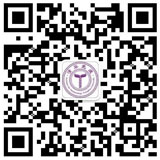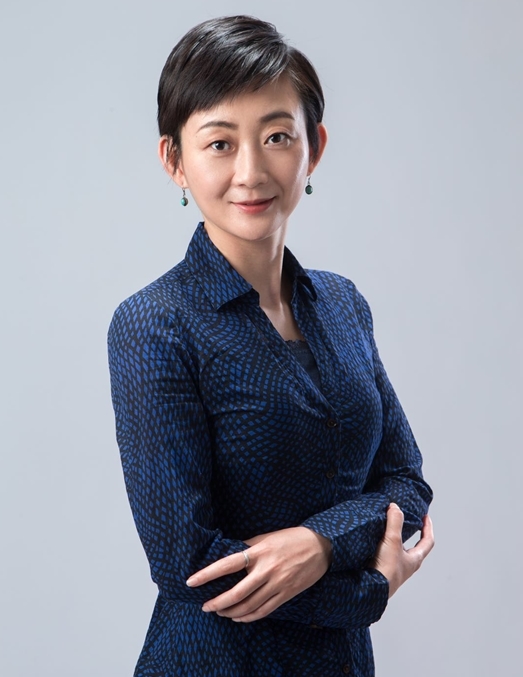
Phone: 86-10-62795612
Email: xiaoyuhu @ tsinghua.edu.cn
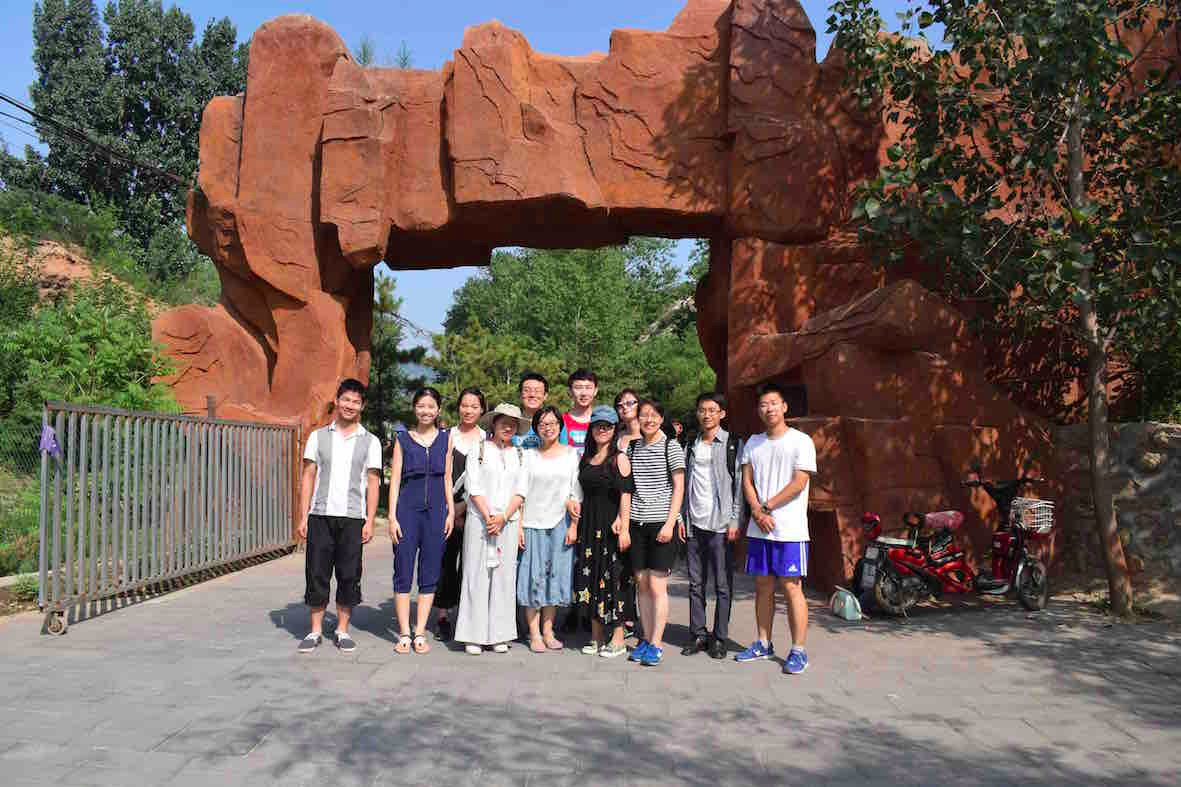
The Laboratory of Xiaoyu Hu
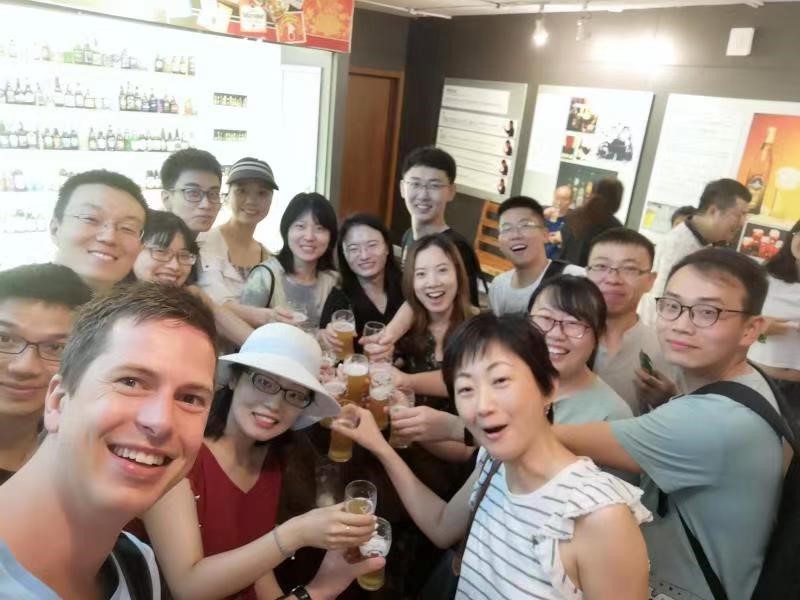
Xiaoyu Hu, Ph.D.
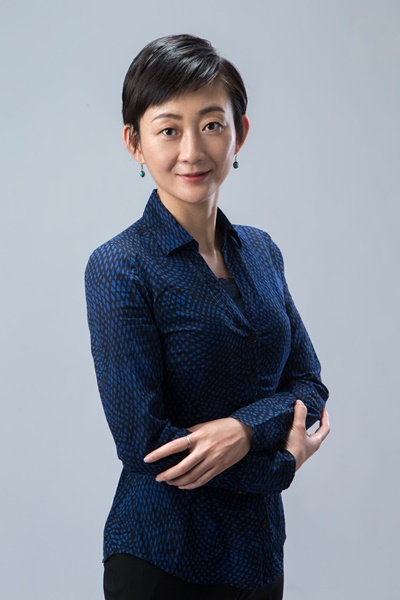
Xiaoyu Hu received her Bachelor of Medicine degree from Peking University and obtained her Ph.D. degree in immunology from Cornell University. She held the position of tenure track Assistant Professor at Weill Cornell Medicine prior to joining Tsinghua University in 2014. Currently she is Professor at Institute for Immunology, Tsinghua University.
Dr. Hu’s research aims to better understand molecular mechanisms governing functionality of two key cell types involved in host defense and inflammatory responses, macrophages and intestinal epithelial cells (IECs). One focus of Dr. Hu’s laboratory is to uncover transcriptional, translational and metabolic mechanisms that regulate macrophage and IEC responses to pathogenic and inflammatory cues. Dr. Hu’s work has been funded by agencies including National Natural Science Foundation of China (NSFC), Minister of Science and Technology of China, U.S. National Institutes of Health (NIH R01), U.K. Royal Society, American College of Rheumatology and Lupus Research Institute and has been reported by news media such as Time Online.
Dr. Hu has authored over 60 publications including corresponding-author research articles in journals such as Immunity, Nature Immunology, Cell Host & Microbe, Science Translational Medicine, Journal of Experimental Medicine, and Nature Communications and book chapters (h-index = 33). She is the recipient of multiple awards including Christina Fleischmann Award to Young Women Investigators from International Cytokine & Interferon Society, Distinguished Young Investigator Award from NSFC, Newton Advanced Fellowship from the U.K. Royal Society and Young Scholar Award from Arthritis Foundation. Dr. Hu also serves in editorial boards of journals including Science Advances, eLife, Trends in Immunology and composed commentary articles for journal such as Immunity. She actively advocates for status and rights of female scientists by serving in diversity panels for organizations such as Society of Leukocyte Biology and composing opinion essays for journals such as Nature Immunology.
Post-Docs
Liu Yang
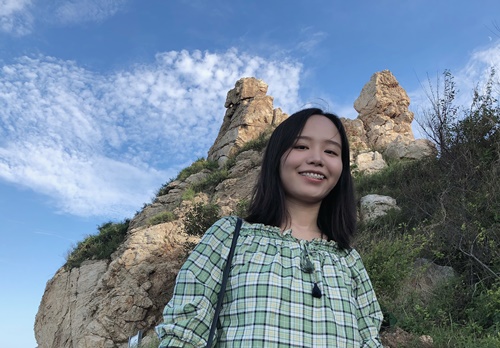
She drifted north from Sichuan at the beginning of Ph.D. to now. After finally graduating from Tsinghua with a doctorate, she joined Hu Lab as a postdoctoral fellow and continued to engage in scientific research. It can be seen from this aspect that she is very determined and persevering. From her Ph.D. to the present, her research direction spans a wide range. She has researched tumor cells and stem cells. Later, she finds immune research more interesting. Her research on tumors and stem cells has been published, and she hopes to make achievements in immune research.
Vincent Philippus van Hensbergen
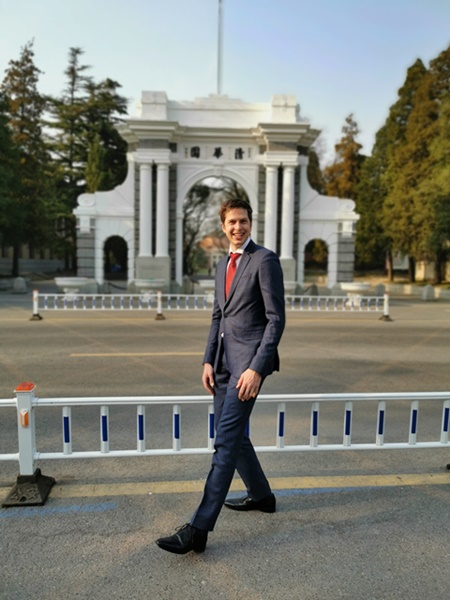
I obtained my BSc and Msc in Biology from Leiden University in the Netherlands. My studies focus on host-pathogen interactions. In September 2014 I started my PhD track in Medical Microbiology at the University Medical Center Utrecht in Utrecht, the Netherlands. My research focused on bacterial immune evasion strategies. My PhD resulted in authored and co-authored publications in PLoS Pathogens, Nature Chemical Biology, and Trends in Immunology. In July 2019 I started as a postdoctoral researcher in the group of Professor Xiaoyu Hu. Here, I studied the interactions between bacterial biofilm and intestinal epithelial cells and the gingiva. I was supported by the Tsinghua University Shui Mu scholarship and the China National Postdoctoral Research Grant.
Students
Bin Zhang
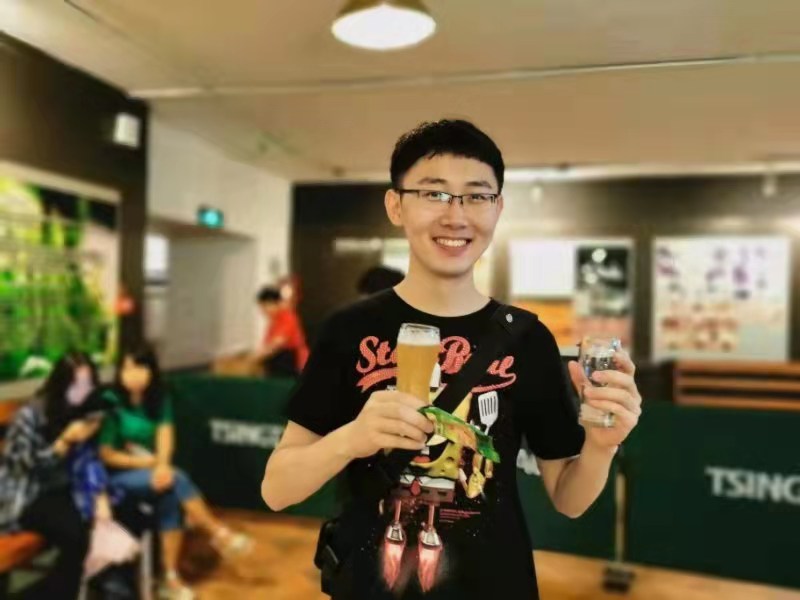
Bin Zhang, PhD student in School of Medicine, joined Dr. Hu’s lab in 2015. The research projects of mine are focused on two directions; (1) The post-initiation mechanism regulated gene expression during macrophage activation and the physiological function of such regulation during inflammatory responses. (2) The heterogeneity of human monocytes in inflammatory responses, especially disease settings, and the molecular mechanism underlying such monocyte heterogeneity. My study on the NELF-associated post-initiation mechanism constraining the transcription of inflammation inhibitors and further enabling the inflammatory macrophage activation was published in Nature Communications (PMID: 32385332) in 2020.
Jiayao Ou
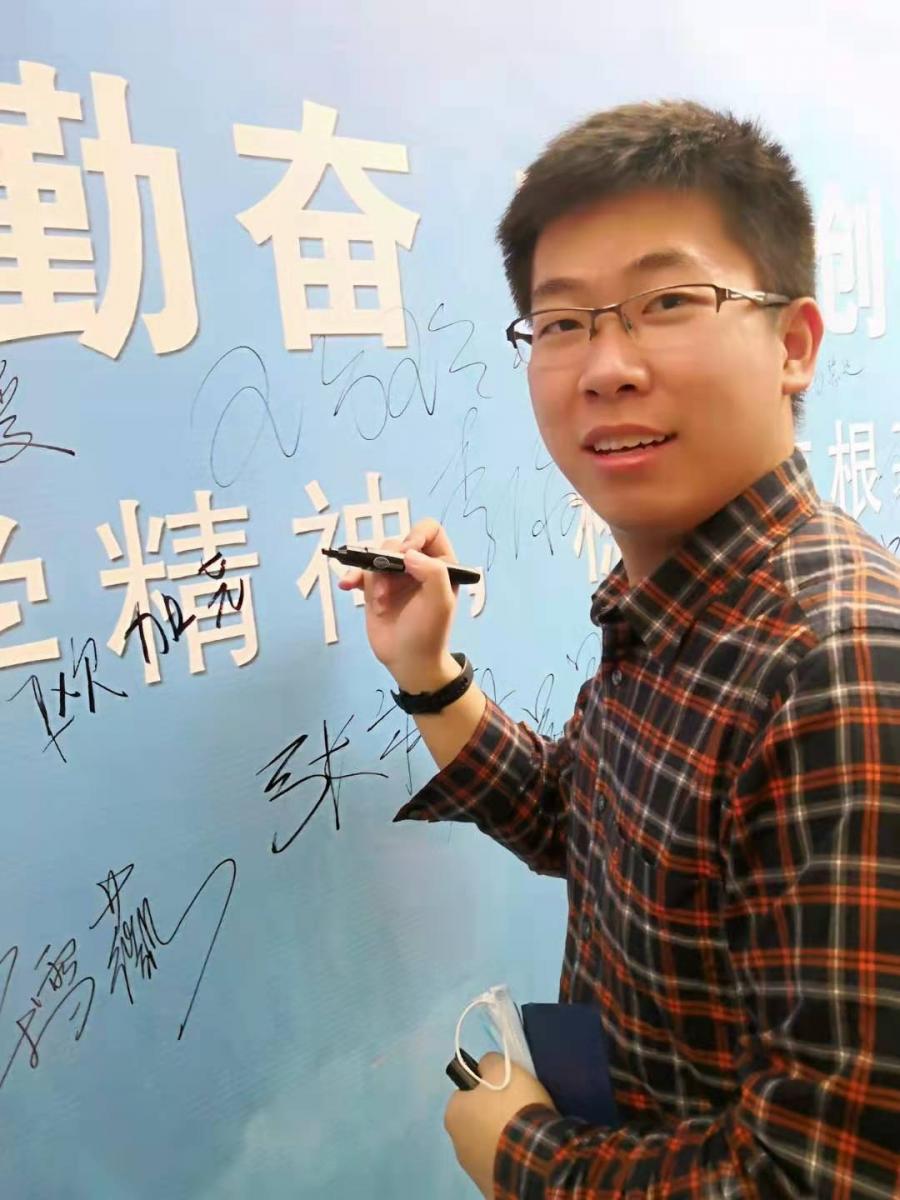
Jiayao Ou, Ph.D student (from 2015) in the School of Life Science. I got bachelor degree from School of Life Science of Si chuan university. Research focus: The transcriptional regulation function of intestinal epithelial cell in preventing intestinal colitis. The function of intestinal antimicrobial peptides in regulating commensal microbiota. Publication and award: 《Frontiers in Immunology》; “The second prize for graduate students”.
Xiaoyu Li
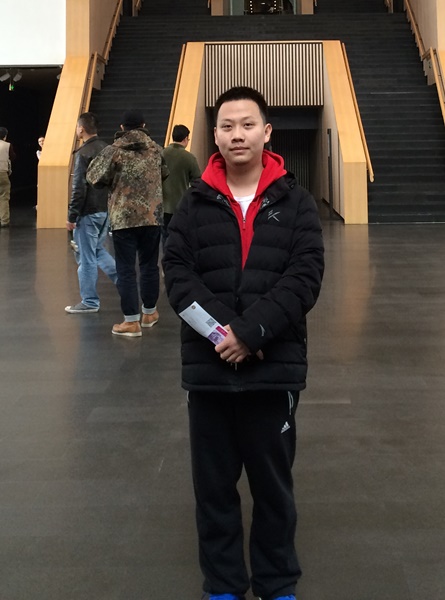
B.S. Biotechnology, Beijing Forestry University, 2015. My PhD work mainly focuses on understanding the regulatory mechanisms of intestinal macrophage and helper T cell crosstalk.
Ziyi Guo
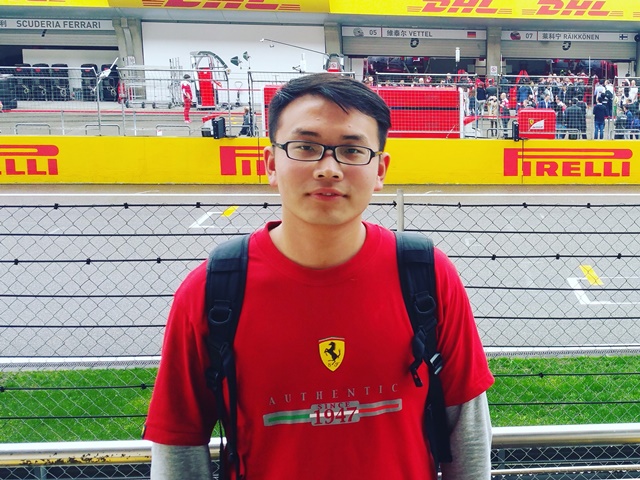
Ziyi Guo,Ph. D student (from 2016) in School of Medicine, Bachelor’s degree from China Agricultural University, research focus: alveolar macrophage activation in infectious disease.
Yuzhuo Yang

Yuzhuo Yang,Ph.D student (from 2017) in CLS, Bachelor’s degree from Wuhan University, research focus: inflammatory response of human monocytes and mechanism of cytokine release syndrome development.
Xiaomin Zeng
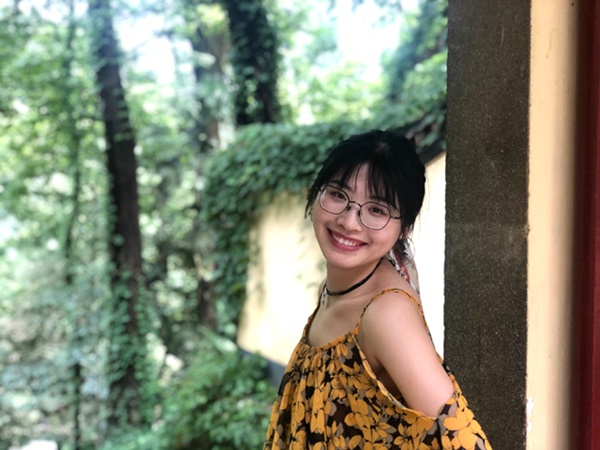
Xiaomin Zeng, Ph. D candidate of basic medicine starting in 2018, likes running, hiking, camping and is an outdoor enthusiast. She is active and full of energy. The main research direction is how metabolic small molecules affect and regulate the tumor immune microenvironment.
Mengtao Ding
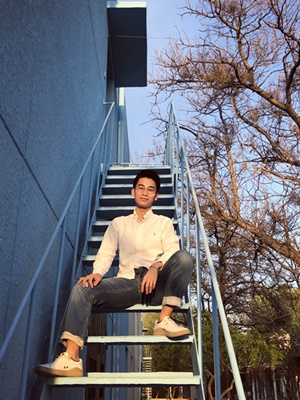
I gained my bachelor degree from SUN YAT-SEN UNIVERSITY. Now my major is basic medicine. And my study mainly focus on macrophage immunometabolism.
Tiantian Kou
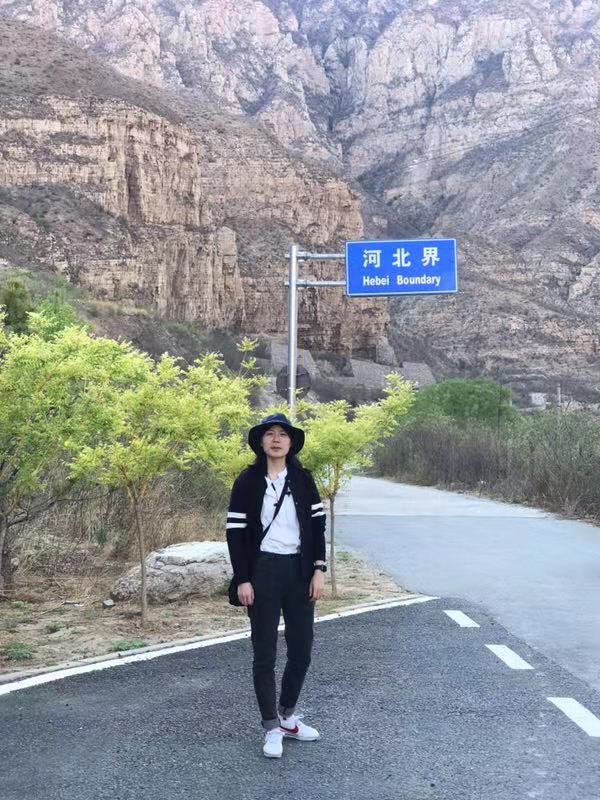
Tiantian Kou, Ph. D student in school of medicine, Bachelor’s degree from Anhui Normal University, master’s degree from Air Force Medical University, research focus: Monocyte differentiation and functional regulation.
Yunqi Liu
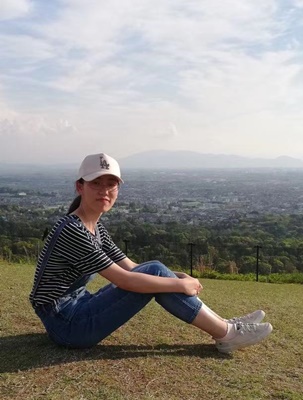
Yunqi Liu. a phD student who often try to look up at the starry sky when leaving the lab at night.
Jiali Wang
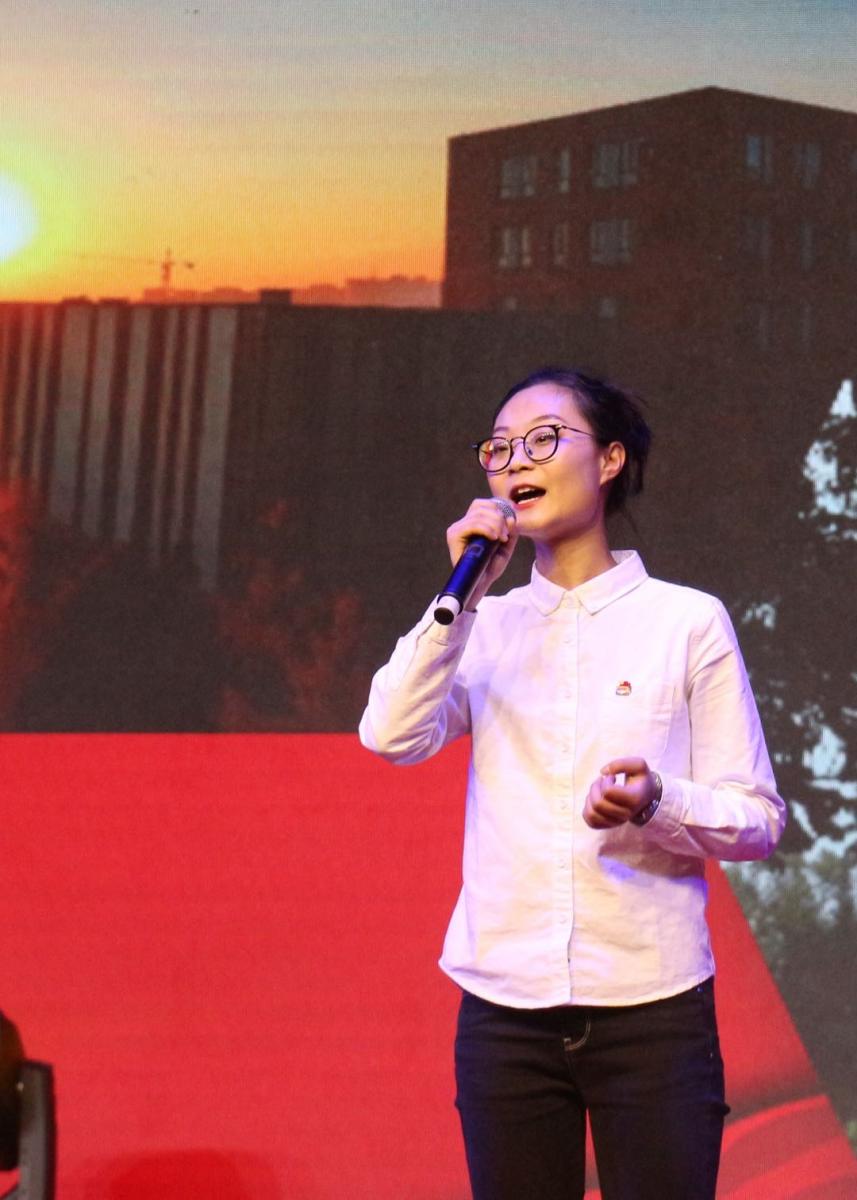
Jiali Wang, received bachelor's degree from Northeastern University, and current research field is the functional regulation mechanism of intestinal epithelial cells.
Xingxian Liu

Xinxian Liu, A little boy from TJ.
Jiaqi Li
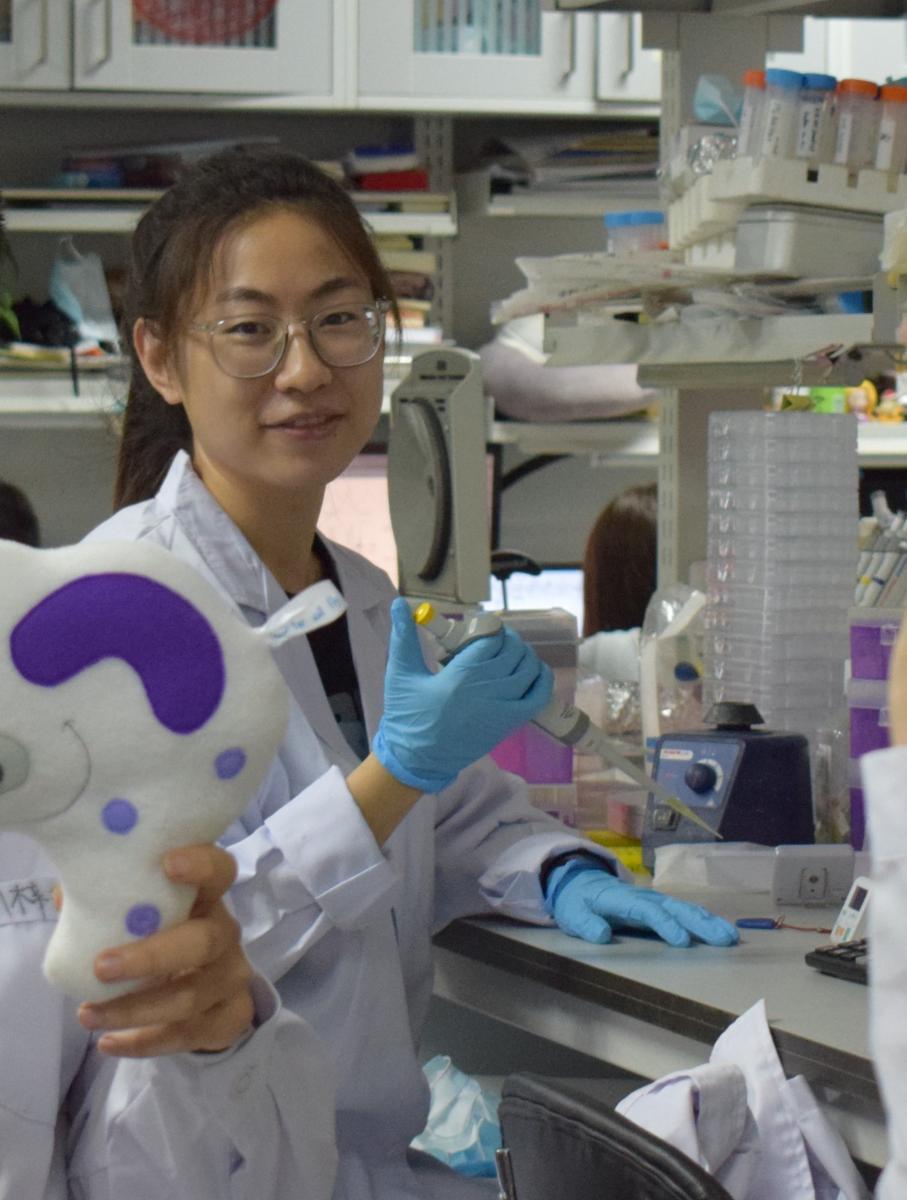
Xiaoyan Xing

Xiaoyan Xing, student of medical experimental class of 2017--a medical student learning how to do scientific research, a painting enthusiast, a cat person.
Haoqi Yang
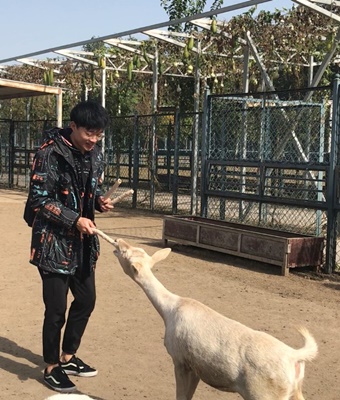
Haoqi Yang, Grade 2018 undergragudate,College of Life Sciences, Tsinghua University.
Lab Alumni
Ning Fei , Postdoctoral fellow, UCSF
Liangliang Ji, Postdoctoral fellow, Sloan Kettering Institute
Guo Xue-kun,Assistant professor, School of Clinical Medicine at Tsinghua University
Kang Lan, Postdoctoral fellow, Weill Cornell Medicine
Yu Li, Postdoctoral fellow, Tsinghua University
Liang Shaonan, Hengrui Medicine Co Ltd.
Zhang Xiang, Genetron Health (Beijing) Co. Ltd.
Laboratory of Innate Effector Function
Innate immune cells such as macrophages act as sentinels of our body by alarming us of external invaders as well as monitoring internal tissue homeostasis. During an immune response, innate immune cells have to achieve all of the following tasks: 1) rapid elimination and/or expulsion of pathogens; 2) recruiting secondary response cells to sites of infection; 3) activating adaptive immunity; and 4) eventually dampening inflammation and restoring homeostasis via tissue repair. These four processes do not stand alone and are intertwined in a spatially and temporally orchestrated manner. Malfunction or poor coordination of any of these tasks would result in either failure of pathogen clearance and death of the host or unneeded and misfired inflammation resulting in excessive tissue damage.
Thus, innate immune cells have evolved sophisticated sensing and signaling networks to perform the above tasks, which has been the subject areas of intense research interests during the past two decades. Many schematic drawings of innate immune pathways end with activation of sequence-specific transcription factors such as NF-kB and IRFs. Nevertheless, for innate effector molecules such as cytokines and chemokines to be fully functional, a number of steps lie between activation of transcription factors and production/secretion of the bioactive entities. A rapidly growing number of examples support the importance of such steps in controlling outcomes of innate immune responses. The research projects in our lab aim to define such ‘unconventional’ innate regulatory mechanisms including but not limited to transcription elongation, RNA structure, protein translation and cytokine secretion. Meanwhile, we also attempt to maximize the disease relevance of our findings by conducting human immunology studies whenever possible.

The specific research areas in the lab are:
1. Investigate molecular mechanisms governing macrophage activation and polarization
2. Unravel regulatory mechanisms controlling functionality of intestinal epithelial cells
3. Discover novel therapeutic targets for autoimmune and inflammatory disorders
ORCID: 0000-0002-4289-6998
ResearcherID: D-5403-2017
10 representative publications out of >60
1. Shang Y, Smith S, Hu X. Role of Notch signaling in regulating innate immunity and inflammation in health and disease. Protein & Cell 2016; 7:159-174
2. Shang Y, Coppo M, He T, Ning F, Yu L, Kang L, Zhang B, Ju C, Qiao Y, Zhao B, Gessler M, Rogatsky I, Hu X. The transcriptional repressor Hes1 attenuates inflammation by regulating transcription elongation. Nature Immunology 2016; 17:930-937
3. Guo XK, Ou J, Liang S, Zhou X, Hu X. Epithelial Hes1 maintains gut homeostasis by preventing microbiota dysbiosis. Mucosal Immunology 2018; 11:716-726
4. Liang S, Guo XK, Ou J, Huang R, Xue Q, Zhang B, Chung Y, Wu W, Dong C, Yang X, Hu X. Nutrient sensing by the intestinal epithelium orchestrates mucosal antimicrobial defense via translational control of Hes1. Cell Host & Microbe 2019; 25:706-718 (cover story accompanied by a preview article)
5. Ning F, Li Y, Yu L, Zhang B, Liu Y, Zhao B, Shang Y*, Hu X* (*co-corresponding author). Transcription factor Hes1 attenuates type I interferon-mediated immune responses via VEGF-C and WDFY1. Journal of Experimental Medicine 2019; 216:1396-1410
6. Ji L, Zhao X, Zhang B, Kang L, Song W, Zhao B, Xie W, Chen L*, Hu X* (*co-corresponding author). Slc6A8-mediated creatine uptake and accumulation reprogram macrophage polarization via regulating cytokine responses. Immunity 2019; 51:272-284
7. Ji L, Hu X. Sweet memories of 8 empowered by butyrate. Immunity 2019; 51:201-203 (invited preview article)
8. Hu X. Stereotyping in east and west: live with it or deal with it? Nature Immunology 2020; 21:234 (invited essay in press for the women scientist-focused issue)
9. Kang L, Zhang X, Ji L, Kou T, Smith SM, Zhao B, Guo X, Pineda-Torra I, Wu L, Hu X. The colonic macrophage transcription factor RBP-J orchestrates intestinal immunity against bacterial pathogens. Journal of Experimental Medicine 2020; 217(4). pii: e20190762. doi: 10.1084/jem.20190762
10. Yu L, Zhang B, Sacta MA, Rollins DA, Chinenov Y, Li R, Rogatsky I*, Hu X* (*co-corresponding author). Negative elongation factor complex enables macrophage-mediated inflammatory responses by controlling expression of anti-inflammatory genes. Nature Communications 2020; 11:2286
11. Wang L, Gao Y, Zhang G, Li D, Zhang G, Wang Z, Zhang J, Hermida L, He L, Wang Z, Si J, Geng S, Ai R, Ning F, Cheng C, Deng H, Dimitrov DS, Sun Y, Huang Y, Wang D, Hu X*, Wei Z*, Wang W*, Liao X* (*co-corresponding author). Targeting KDM5A induction and TLR activation to improve response to immune checkpoint blockade. Science Translational Medicine 2020; 12(560):eaax2282
12. Zhang X, Liu J, Wu L, Hu X. MicroRNAs of the miR-17~92 family maintain adipose tissue macrophage homeostasis by sustaining IL-10 expression. eLife 2020; 9:e55676. doi: 10.7554

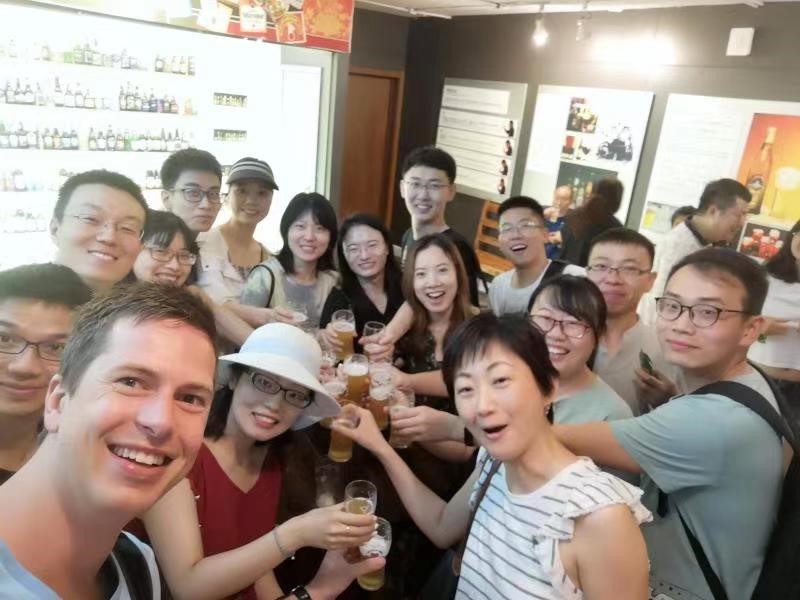
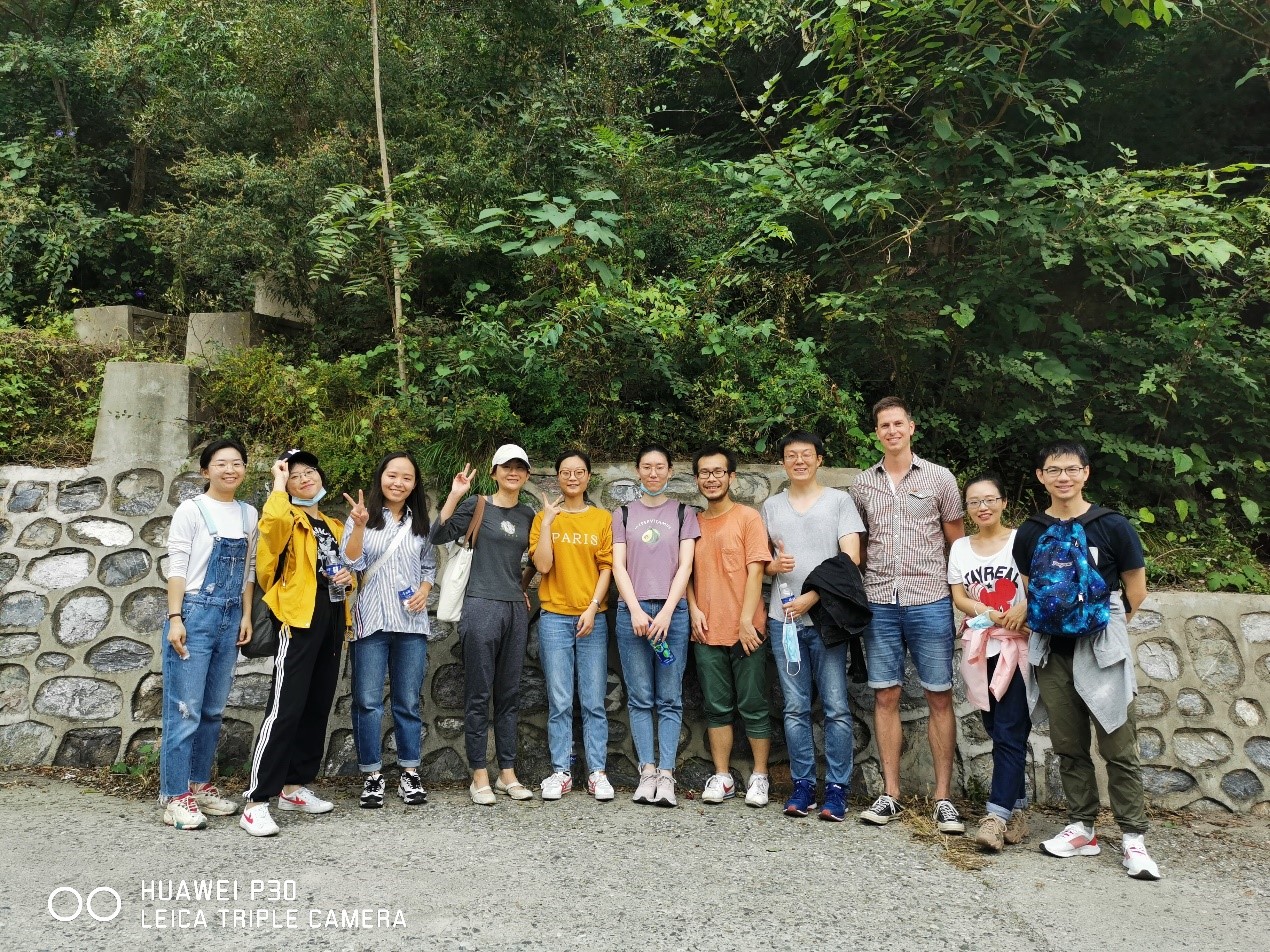
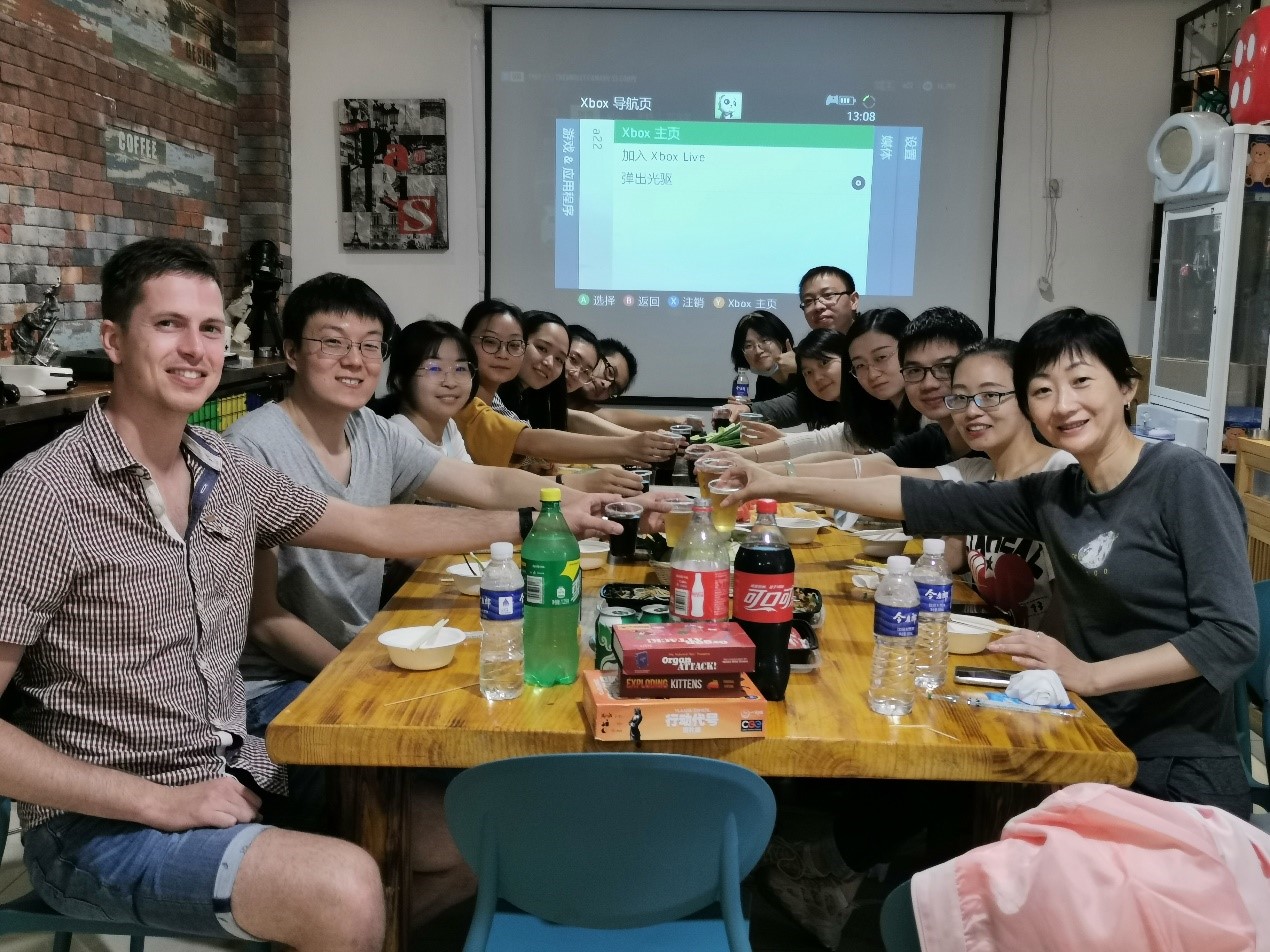

Copyright © 2017 Institute for Immunology Tsinghua University
Contact Address: Room D302, Medical Science Building, Tsinghua University, Beijing 100084, China
Tel: (86) 10-62776420 Fax: (86) 10-62776420
